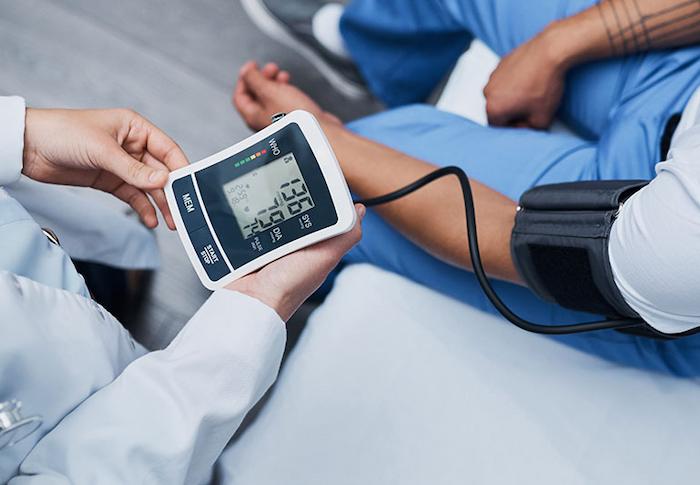Hypertension: What it is, Causes, Symptoms, Treatment
High blood pressure, or hypertension, is a common condition in which blood pressure is chronically elevated, increasing the risk of heart disease, stroke, and kidney problems. Blood pressure is measured in two readings: systolic (pressure when the heart beats) and diastolic (pressure when the heart is relaxed), being considered normal around 120/80 mmHg.
Many people are unaware of the dangers of hypertension, which can be asymptomatic for years, but its progressive effects can be devastating. Therefore, early diagnosis is essential to prevent serious complications, and treatment may include changes in lifestyle and medication.
It is important to monitor your blood pressure regularly and seek medical advice if it is elevated. In this text, we will explore more about hypertension and its health implications, as well as forms of prevention and treatment. Follow!
What is Hypertension and its causes?
Arterial hypertension, or high blood pressure, is a condition in which the blood pressure in the arteries is chronically elevated. This condition can be caused by many factors, including family history, sedentary lifestyle, obesity, smoking, excessive alcohol consumption, stress and use of certain medications.

Hypertension can lead to serious complications such as heart disease, stroke and kidney problems, and it can be asymptomatic for years. It is essential to perform regular blood pressure measurements and seek medical advice if it is high, in order to prevent serious complications and ensure cardiovascular health.
Read too:
– Apps to measure average blood pressure on Smartphone, Samsung Galaxy Watch and Apple Watch
– Hypotension: What It Is, Causes, Symptoms, Treatment
What are the signs of hypertension?
Hypertension, also known as high blood pressure, is a silent condition that may not show symptoms in its early stages. However, as blood pressure rises, there may be warning signs that indicate the presence of the condition. Below are some of the most common symptoms of high blood pressure:
- frequent headaches;
- Dizziness;
- Ringing in the ears;
- Blurry or double vision;
- Nosebleeds;
- Shortness of breathe;
- Fatigue;
- Palpitations;
- Swelling in the feet, ankles or legs.
It is important to be aware of these signs and seek medical advice if they persist or if your blood pressure is high.
When is high blood pressure a concern?
Pressure is considered worrying when it reaches values above 140/90 mmHg in two or more measurements taken at intervals of a few weeks. This condition increases the risk of serious complications such as heart disease, stroke, and kidney problems. It is critical to regularly monitor blood pressure and seek medical advice if it is elevated in order to prevent serious complications associated with high blood pressure. Early diagnosis is essential to ensure cardiovascular health.
What to do to lower the pressure?
If you’ve been diagnosed with hypertension, it’s important to take steps to lower your blood pressure. Some lifestyle changes can help lower blood pressure, including:
- Reduce salt consumption;
- Lose weight if you are overweight;
- Practice physical activity regularly;
- Quit smoking;
- Limit alcohol consumption;
- Control stress.
What treatment for Hypertension?
Treatment of hypertension may involve lifestyle changes, such as reducing salt intake, exercising regularly, losing weight, and managing stress. In addition, the doctor may prescribe medications to help control blood pressure, such as diuretics, ACE inhibitors, calcium channel blockers, and others. It is important to follow your doctor’s advice and regularly monitor your blood pressure to prevent serious complications.
Treatment should be individualized, taking into account the severity of the condition and the specific needs of each patient.
What happens if you sleep with high blood pressure?
Sleeping with high blood pressure increases the risk of cardiovascular complications, such as stroke and heart attack, because when blood pressure is high, the heart has to work harder to pump blood through the arteries. Prolonged exposure to this condition can cause damage to blood vessels and organs such as the heart, kidneys and brain.
Therefore, it is important to monitor blood pressure regularly and seek medical attention if pressure to prevent serious complications and ensure cardiovascular health. Measures to help control blood pressure during sleep include sleeping with your head elevated, avoiding stimulating foods and drinks before bed, managing stress, and following your doctor’s prescribed medications.
Pay attention to symptoms of high blood pressure and follow your doctor’s advice to avoid serious complications.



Deixe um comentário